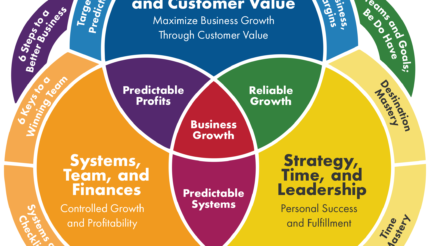Investing in Self-Development: A Crucial Strategy for Business Growth
In the ever-evolving world of business, staying competitive requires more than just having a great product or service. It demands continuous learning, adaptability, and personal growth. This is where investing in self-development becomes not just beneficial, but essential. As an entrepreneur or business leader, your personal growth directly impacts the growth of your business. This blog will explore why investing in self-development is crucial for business growth and how it can lead to long-term success.
-
The Connection Between Personal and Professional Growth
The success of a business is often a reflection of the mindset, skills, and knowledge of its leader. As the saying goes, “A business is only as good as the person leading it.” When you invest in self-development, you are essentially enhancing your ability to make better decisions, inspire your team, and navigate the challenges that come your way.
-
a) Leadership and Decision-Making
Good leadership is the cornerstone of a successful business. Self-development helps in refining leadership skills such as communication, empathy, and strategic thinking. By learning from others, whether through books, courses, or mentors, you can develop a leadership style that not only drives your team forward but also fosters a positive and productive work environment.
Moreover, self-development enhances your decision-making capabilities. The more knowledge and experience you gain, the better equipped you are to make informed decisions. This could involve anything from strategic business moves to daily operational choices. Improved decision-making leads to better outcomes for your business, reducing risks and increasing opportunities for growth.
-
b) Building Resilience
The business world is fraught with challenges, from financial downturns to competitive pressures. One of the key aspects of self-development is building resilience. By investing in your mental and emotional well-being, you learn to handle stress better, recover from setbacks faster, and maintain a positive outlook even in tough times. Resilience not only helps you persevere through challenges but also sets a powerful example for your team.
-
Staying Ahead of the Curve
The business landscape is constantly changing. New technologies emerge, market trends shift, and customer expectations evolve. To stay ahead, it’s crucial to keep learning and adapting. Self-development ensures that you are always up-to-date with the latest industry trends and technologies, giving your business a competitive edge.
-
a) Lifelong Learning
Adopting a mindset of lifelong learning is vital for business leaders. This could involve pursuing formal education, attending workshops, or simply reading widely. The goal is to continuously expand your knowledge base, which in turn can be applied to your business strategies.
For instance, if you stay informed about the latest digital marketing trends, you can better target your audience and improve your marketing strategies. Similarly, learning about new project management tools or methodologies can streamline your operations, leading to increased efficiency and profitability.
-
b) Innovation and Creativity
Innovation is the driving force behind business growth. However, innovation doesn’t just happen; it’s often the result of creative thinking and problem-solving. Self-development plays a critical role in fostering creativity. By exposing yourself to new ideas, perspectives, and experiences, you can think outside the box and come up with innovative solutions that set your business apart from the competition.
Investing in self-development also encourages you to take calculated risks. When you are confident in your knowledge and skills, you are more likely to explore new opportunities, whether it’s entering a new market, launching a new product, or adopting a new business model. These risks can lead to significant rewards, fuelling the growth of your business.
-
Improving Communication and Interpersonal Skills
Effective communication is a key component of any successful business. Whether it’s negotiating with clients, motivating employees, or collaborating with partners, your ability to communicate effectively can make or break your business relationships.
-
a) Enhancing Interpersonal Relationships
Self-development often involves working on your interpersonal skills. This includes learning how to listen actively, express yourself clearly, and empathise with others. These skills are crucial in building strong, trust-based relationships with your team, clients, and stakeholders.
When you invest in developing your communication skills, you create an environment where open dialogue is encouraged, and everyone feels heard and valued. This can lead to increased employee satisfaction, better teamwork, and stronger client relationships, all of which contribute to the overall success of your business.
-
b) Conflict Resolution
Conflict is inevitable in any business setting. How you handle conflict can significantly impact your business’s productivity and morale. Self-development can equip you with the tools and techniques needed to manage and resolve conflicts effectively.
By understanding different communication styles and learning how to navigate difficult conversations, you can address issues before they escalate, maintain a harmonious work environment, and keep your business running smoothly.
-
Boosting Confidence and Self-Esteem
Confidence is a critical trait for any business leader. It influences how you present yourself, how you make decisions, and how you inspire others. However, confidence isn’t something that just happens—it’s built through continuous self-development.
-
a) Overcoming Self-Doubt
Many entrepreneurs struggle with self-doubt, especially in the early stages of their business journey. Investing in self-development can help you overcome these doubts by providing you with the knowledge and skills needed to succeed. The more you learn and grow, the more confident you become in your abilities to lead your business effectively.
-
b) Taking Initiative
Confidence also empowers you to take initiative. When you believe in yourself and your capabilities, you are more likely to step out of your comfort zone and take the lead on new projects or strategies. This proactive approach can lead to new opportunities for your business and drive significant growth.
-
Fostering a Growth Mindset
A growth mindset is the belief that abilities and intelligence can be developed through dedication and hard work. This mindset is crucial for business success, as it encourages continuous improvement and resilience in the face of challenges.
-
a) Embracing Challenges
Self-development fosters a growth mindset by encouraging you to embrace challenges rather than shy away from them. When you view challenges as opportunities to learn and grow, you are more likely to persevere through difficult times and come out stronger on the other side.
-
b) Learning from Failure
Failure is often seen as a negative outcome, but in reality, it’s one of the best teachers. Self-development teaches you to view failure as a learning opportunity rather than a setback. By analysing what went wrong and applying those lessons to future endeavours, you can continuously improve and drive your business forward.
-
Attracting and Retaining Top Talent
Your commitment to self-development doesn’t just benefit you—it also benefits your team. When employees see that their leader is dedicated to personal and professional growth, it creates a culture of continuous improvement within the organisation.
-
a) Leading by Example
As a business leader, you set the tone for your company’s culture. By prioritising self-development, you lead by example and encourage your employees to do the same. This can result in a more skilled, motivated, and engaged workforce, which is essential for business growth.
-
b) Employee Development
Investing in your own self-development also highlights the importance of employee development. By providing opportunities for your team to learn and grow, you can attract top talent who are eager to advance their careers. Moreover, employees who feel supported in their professional development are more likely to stay with your company, reducing turnover and retaining valuable skills within your business.
-
Enhancing Business Agility
In today’s fast-paced business environment, agility is key to staying competitive. The ability to quickly adapt to changes, whether in the market or within your organisation, can mean the difference between success and failure.
-
a) Adapting to Change
Self-development equips you with the mindset and skills needed to adapt to change. Whether it’s learning about new technologies, understanding shifts in consumer behaviour, or exploring new business models, continuous learning helps you stay agile and responsive to the ever-changing business landscape.
-
b) Strategic Pivoting
Sometimes, adapting to change requires a complete pivot in strategy. This can be daunting, but with a solid foundation in self-development, you are better prepared to make these critical shifts. By staying informed and continuously improving, you can make strategic decisions that keep your business on the path to growth, even in uncertain times.
Conclusion
Investing in self-development is one of the most important decisions you can make as a business leader. It not only enhances your personal growth but also drives the success and growth of your business. By improving your leadership skills, staying ahead of industry trends, fostering a growth mindset, and building resilience, you position yourself and your business for long-term success.
Remember, the journey of self-development is ongoing. It’s not something you do once and forget about; it’s a continuous process that requires dedication and commitment. However, the rewards are well worth the effort. As you grow and evolve, so too will your business, leading to greater opportunities, increased profitability, and a lasting impact in your industry.





